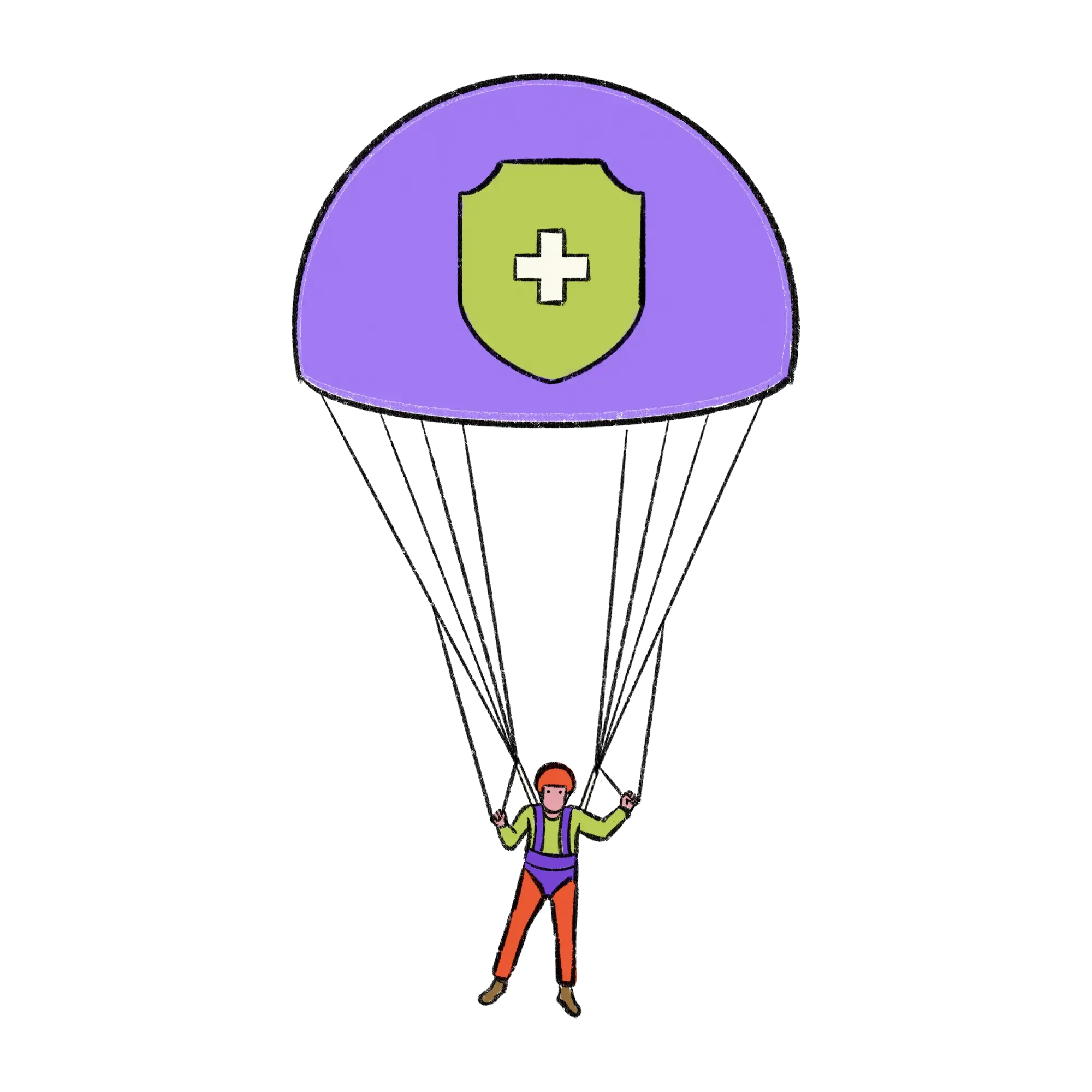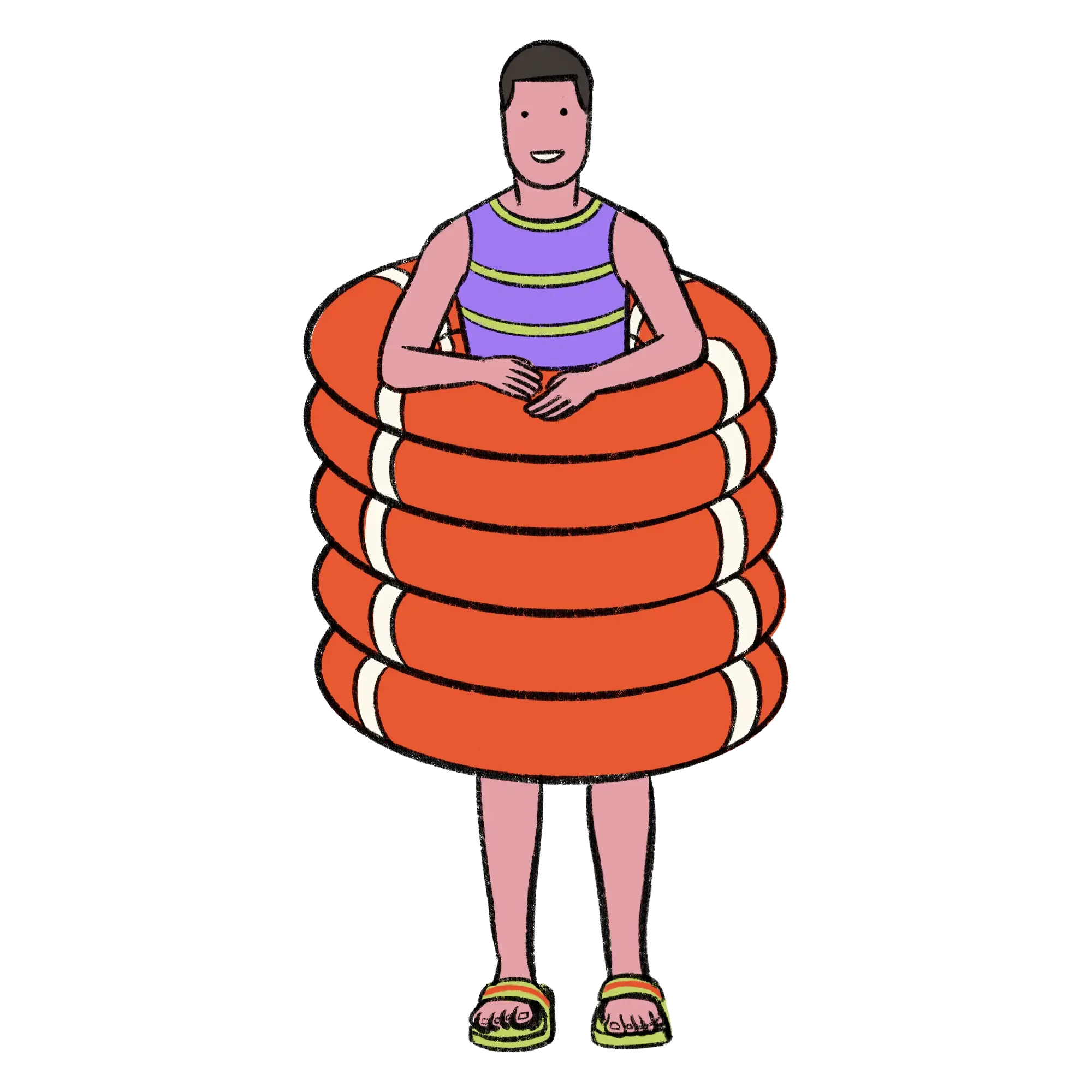Illness Benefit payments don't follow a fixed payment schedule — they can be issued any day from Monday to Saturday.
For employers, understanding this flexible schedule can help manage payroll and support employees on sick leave. The day an employee receives their Illness Benefit payment depends on the date of claim registration and the start date of their illness.
Let's dive into more details about Illness Benefit payments in Ireland and why they matter for employers.
Further Reading
What Day Is Illness Benefit Paid in Ireland?
Illness Benefit (IB) is an Irish social welfare payment that supports employed and self-employed individuals during long or short-term illness.
If your employee qualifies, they’ll receive payments each week. The payment day depends on when their Illness Benefit claim is registered and the first day of their illness.
Payments are made any day of the week from Monday to Saturday.
Employers should also note that Illness Benefit can be paid directly to them if they provide their payment details in the employee’s application form. This option can simplify payroll management for staff on extended sick leave.
Additionally, Revenue Payroll Notifications (RPNs) will reflect Illness Benefit payments, which may affect payroll calculations and tax liability adjustments.
Remember: Illness Benefit is different from sick pay and Enhanced Illness Benefit (Covid-19 related Illness Benefit payment).
From January 2025, employees who have been with their current employer for at least 13 weeks get 7 days of paid sick leave a year — known as Statutory Sick Pay (SSP). Employees can’t get Illness Benefit for the days they are under this sick pay scheme.
6 FAQs About Irish Illness Benefit Payments
Here are six common questions related to Illness Benefit payments:
1. How Is Illness Benefit Paid to Your Employees?
If your employee is eligible for a social welfare payment, they'll have to contact the Department of Social Protection (DSP) to determine how their weekly payments will be made.
Besides being paid to the employer, the different payment methods available are:
- EFT (Electronic Fund Transfer) into their Bank Account: Employees can receive their Illness Benefit payment directly into their bank account, building society, or credit union account. To receive the payment via EFT, submit the DIR PMT1 application form (Direct Payment to an Account in a Financial Institution Application Form).
- Local Post Office: Employees can have their Illness Benefit paid to their local post office. They’ll have to collect it in person by carrying their Public Service Card (PSC) or Social Service Card (SSC) and photo ID with them.
- Cheque Payments: In exceptional cases or for arrears, employees may receive their Illness benefit by cheque. They can cash it at their post office or bank.
Note: Your employees can no longer cash social welfare payments at the post office using a book of payable orders.
2. What Is the Payment Rate for Illness Benefit?
In 2025, the personal rates of payment for Illness Benefit are as follows:
- €244 for anyone with average weekly earnings of €300 or more.
- €191.10 for anyone with average weekly earnings between €220-€299.99.
- €157.30 for anyone with average weekly earnings between €150-€219.99.
- €109.50 for anyone with average weekly earnings below €150.
Your employees may qualify for an increase in the Illness Benefit amount if they have adult dependants.
Typically, they won't receive payment for the first three days of illness, known as 'waiting days'. Sundays aren't considered waiting days for social welfare payments.
Find out more about Illness Benefit Rates, including average weekly earnings and increases for qualified adult and child dependants.
3. Who Qualifies for Illness Benefit?
Individuals unable to work due to illness may qualify for Illness Benefit provided they:
- Are under 66 years of age and
- Have sufficient Pay Related Social Insurance (PRSI) contributions under class A, E, P, or H.
They also need to be certified as medically unfit for work by a general practitioner (GP) and must apply within a six-week period of falling ill.
If your employees have a medical certificate from their doctor recommending self-isolation, they can apply for Illness Benefit.
Further Reading
4. How Long Can Your Employees Receive Illness Benefit Payments?
Depending on the length of your employee's sickness, they can receive Illness Benefit for a maximum of 1 or 2 years or a lesser period.
The payment periods available are:
- 2-year period /624 payment days: Employees need a minimum of 260 weeks of PRSI contributions paid since they first started work OR
- 12-month period /312 payment days: Employees must have paid 104 to 259 weeks of social insurance contributions since they first started working.
If they make a second claim for Illness Benefit within 26 weeks of the first claim, it will be treated as one claim.
Employees will need at least 13 PRSI contributions before they can claim Illness Benefit again, in addition to meeting the other qualifying criteria.
They may requalify with less than 13 contributions if:
- They were receiving Illness Benefit for one year only AND
- Their additional PRSI contributions have increased their total to 260 contributions. For instance, say an employee had 200 contributions when their Illness Benefit expired; they could requalify by working and paying 60 contributions.
What's more?
A review of the employee’s Illness Benefit claim will take place occasionally to ensure continued payment. They'll also have to attend an assessment conducted by a medical assessor — a doctor from the DSP.
The DSP will contact the employee when their payment is due to stop. They'll advise them of the next steps, like applying for:
- Invalidity Pension: If an employee is ill, permanently incapable of work, and meets the PRSI requirements.
- Disability Allowance: Employees may be able to claim this disablement benefit if they have a disability that's likely to last for one year or longer.
- Partial Capacity Benefit: This social welfare scheme lets employees return to work or self-employment at a reduced capacity provided they receive the Illness Benefit (for at least 6 months) or Invalidity Pension.
- Supplementary Welfare Allowance: If employees don't qualify for any other payments and their income isn't enough to meet their living expenses.
- Irish State Pension: Employees have automatic entitlement if they turn 66. They must apply three months before their 66th birthday.
5. How Do You Apply for Illness Benefit?
To apply for Illness Benefit in Ireland, your employees must:
- Complete the Illness Benefit Form (IB1 claim form) and get a Certificate of Incapacity For Work from their doctor. Their GP may submit the medical certificate online.
- Post them to the DSP via Freepost to Social Welfare Services, PO Box 1650, Dublin 1.
If the employee has been admitted to the hospital, they can ask a hospital doctor for a pro forma letter to give to their GP, who will supply them with an IB1 form and medical certificate (Certificate of Incapacity For Work) free of charge.
If they're still hospitalised, a family member can take the pro forma letter to the doctor on the employee’s behalf.
Note: Your employees must apply for Illness Benefit within six weeks of becoming ill. If they don't, they may lose some of their payment. However, their payment can be backdated if they have a valid reason for the late application.
6. How Can Employers Support Their Employees Navigate Illness Benefit?
Here’s what you can do to help ensure your employees’ financial well-being in times of illness:
- Educate your workforce: Ensure employees are aware of their entitlements, including Illness Benefit and Statutory Sick Pay. Share clear, concise information about eligibility, application timelines, and processes through internal communication channels.
- Provide application assistance: Offer guidance to employees who may need help with completing forms or understanding the steps involved in applying for Illness Benefit. Designate a point of contact in HR or create a simple guide that outlines the process, including where to get forms, submission deadlines, and how to provide medical certificates.
- Communicate important deadlines: Remind employees about critical timeframes, such as the six-week application window for Illness Benefit. Regular updates or reminders can help prevent delays or missed opportunities for support.
- Facilitate communication with GPs: Provide resources or support for employees to easily access general practitioners for medical certification. This can include sharing contact details for local clinics, offering flexible leave for medical appointments, or collaborating with healthcare providers for faster documentation.
- Implement flexible policies: Adopt workplace policies that accommodate employees dealing with illness. These might include flexible working hours, reduced workloads during recovery, or a phased return-to-work plan.
Offer Next-Level Employee Benefits With Kota
Illness Benefit is a social welfare benefit in Ireland for individuals who meet the qualifying conditions. It provides basic financial support during times of ill health.
But as an employer, if you want to offer your employees more comprehensive health coverage, Kota can help.
Kota is a modern benefits app that streamlines and centralises employee health insurance benefits in one place. Decide on your contribution and let employees select the packages that best suit their needs. It’s that simple!
Empower your team with better health benefits. Join Kota to give your employees the benefits they deserve.










.svg)
.svg)
.webp)
.webp)
.png)
.png)
.png)

.png)
.png)
.webp)
.webp)
.webp)
.svg)
.svg)
.svg)


